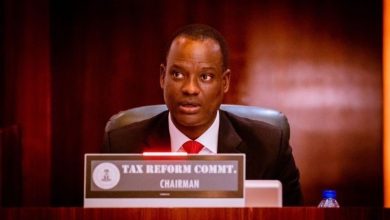Tinubu Suspends Controversial FRC Act, Caps Dues for Large Private Firms
President Tinubu has paused a disputed law that imposed steep annual fees on big private firms.
The move follows industry outcry over fairness, prompting a review and interim payment cap.
President Bola Tinubu has approved the suspension of the controversial Financial Reporting Council (Amendment) Act 2023, which imposed new annual regulatory dues on large private firms classified as Public Interest Entities (PIEs).
The suspension, announced by the Ministry of Industry, Trade and Investment on Sunday, comes after months of sustained lobbying by business groups and a technical review initiated by the federal government in response to mounting industry backlash.
The amended Act, passed in 2023, mandated private PIEs to pay annual dues ranging from 0.02 to 0.05 percent of their turnover without any ceiling while publicly listed companies were required to pay a flat N25 million. This disparity triggered widespread concerns over fairness and compliance burden, especially among private sector players already grappling with economic hardship.
Minister of Industry, Trade and Investment, Jumoke Oduwole, in a personally signed statement, noted that the new fee structure raised “serious questions about equity, sustainability, and Nigeria’s ease of doing business.”
In response to growing dissent, the Ministry convened a high-level consultation on March 26, 2025. Attendees included representatives from key industry associations such as the Oil Producers Trade Section (OPTS), the Association of Licensed Telecommunications Operators of Nigeria (ALTON), and the Nigeria Employers’ Consultative Association (NECA).
According to Oduwole, the meeting concluded with an agreement to impose a temporary 60-day pause on enforcement while a Technical Working Group examined the broader economic and operational implications of the policy.
The Working Group met six times over three weeks and submitted its findings to the Ministry on April 17, 2025. Following a review of its report, President Tinubu has now officially directed that implementation of the new dues be suspended.
“To provide immediate clarity, the Honorable Minister has directed the Financial Reporting Council to apply an interim cap on annual dues payable by private sector PIEs at N25 million, aligning with the amount required from publicly listed firms,” the statement read.
Oduwole explained that the Ministry of Justice has been tasked with evaluating whether a formal amendment to the Act will be necessary in the long term.
She added, “This directive creates a stable environment for compliance for affected companies in the short term and reflects the Ministry’s commitment to prioritizing transparency, investor confidence, and regulatory equity.”
The minister also confirmed that the President was briefed on the findings and stakeholder concerns before approving the policy shift.
“Mr President has listened to the legitimate concerns of the business community and has directed that implementation of the provision be paused while a comprehensive review is conducted,” the statement added.
This development is seen as a significant victory for Nigeria’s organized private sector, which had warned that the unchecked implementation of the new dues could hurt investment, reduce competitiveness, and harm the already fragile economy.
Criticism of the amendment first gained traction in late 2024, when early versions of the policy began circulating. Many industry leaders expressed fears that classifying large private firms as PIEs without prior consultation could upend existing corporate governance frameworks and increase operational costs.
Despite the suspension, Oduwole reiterated the government’s commitment to its 8-Point Agenda, particularly goals focused on economic diversification, job creation, and foreign investment attraction.
With the suspension now in force, the Financial Reporting Council has been instructed to enforce the N25 million interim cap, pending further legal and legislative guidance.
The FRC Amendment Act was initially introduced as a measure to boost transparency and strengthen oversight across both listed and large private firms. However, following the backlash and recent developments, its future remains uncertain pending further review.



